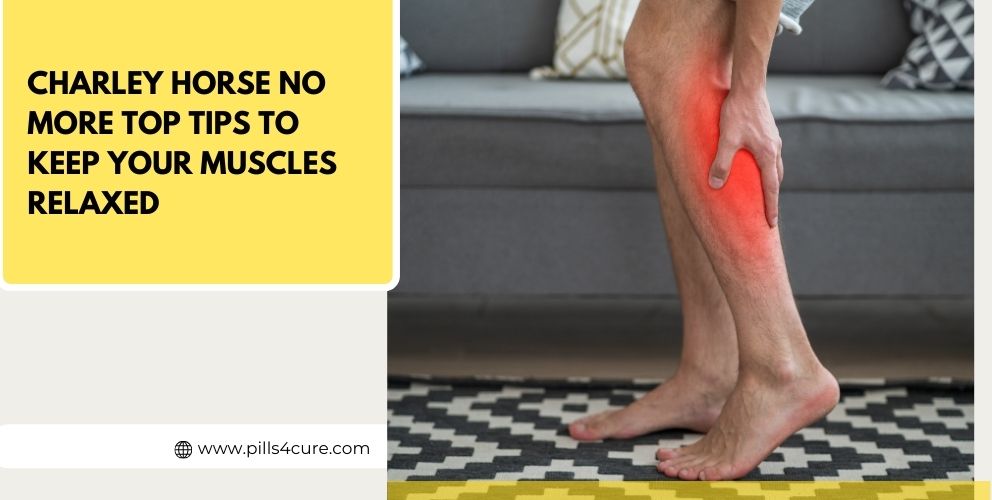
Charley Horses in Legs: Common Triggers and Treatments
Have you ever been jolted awake by a sudden, sharp pain in your leg that feels like your muscle is twisting into a knot? If so, you’ve likely experienced what many refer to as a charley horse. But what’s the charley horses meaning exactly? In simple terms, a charley horse is a colloquial name for a painful muscle cramp or spasm, most commonly occurring in the legs. This can manifest as calf muscle cramps, a cramp in calf, or even leg cramps thigh areas, leaving you hobbling around in discomfort.
These episodes, often striking without warning, are especially notorious as calf muscle cramps at night, disrupting sleep and causing frustration. Whether it’s a muscle spasm in calf during exercise or leg cramps calf while resting, understanding the triggers and treatments can make a world of difference. In this blog, we’ll explore the common causes behind these pesky spasms and delve into effective remedies, including the role of medications like baclofen tablet. We’ll also cover precautions, answer frequently asked questions, and share some fresh insights on preventive strategies to keep your legs cramp-free.
What Triggers Charley Horses?
Charley horses don’t happen out of the blue; they’re often sparked by everyday factors that strain your muscles. Here are some of the most common culprits:
- Dehydration and Electrolyte Imbalance: When your body lacks fluids or essential minerals like potassium, magnesium, or calcium, muscles can rebel. This is a frequent cause of calf muscle cramps at night, as your body winds down but your hydration levels dip.
- Overexertion or Poor Warm-Up: Pushing too hard during workouts without proper stretching can lead to a muscle spasm in calf or leg cramps thigh. Runners and cyclists know this all too well – that sudden cramp in calf mid-stride.
- Sedentary Lifestyle or Prolonged Sitting: Ironically, not moving enough can tighten muscles, triggering leg cramps calf when you finally stand up.
- Medical Conditions: Issues like poor circulation, nerve compression, or even pregnancy can heighten the risk. For instance, expectant mothers often report increased calf muscle cramps due to added weight and hormonal shifts.
- Medications and Age: Certain drugs, like diuretics, or simply getting older can make you more prone to these spasms.
Recognising these triggers is the first step to prevention. If you’re dealing with frequent episodes, tracking your daily habits might reveal patterns.
Effective Treatments for Charley Horses
When a charley horse strikes, quick relief is key. Start with simple at-home fixes: gently stretch the affected muscle, massage it, or apply a warm compress to ease the tension. For calf muscle cramps, try standing and pressing your toes against a wall to elongate the muscle.
If spasms persist or are severe, medical interventions might be necessary. One option gaining attention is the baclofen tablet, a muscle relaxant that helps reduce spasms by acting on the nervous system. It’s particularly useful for chronic conditions involving muscle spasm in calf or leg cramps thigh.
Different Dosages of Baclofen
Baclofen comes in various forms and strengths, often under brand names or generics. Always consult a doctor for the right dosage, as it depends on your condition’s severity and your overall health. Here’s a breakdown:
- Baclof 10 mg: This is a common starting dose for mild to moderate spasms. It’s ideal for those new to the medication, helping to alleviate cramp in calf without overwhelming side effects.
- Baclofen 10 mg: As the generic version, this offers the same active ingredient at an affordable price. It’s often prescribed for ongoing leg cramps calf, taken once or twice daily to maintain muscle relaxation.
- Lioresal 10 mg: A branded option, this 10 mg tablet is used similarly for muscle spasm in calf. It’s known for its reliability in treating spasms linked to neurological issues.
- Lioresal 25 mg: For more intense or frequent episodes, like persistent calf muscle cramps at night, a higher dose like this might be recommended. It’s typically built up gradually to avoid tolerance.
Remember, baclofen tablet should be taken with food to minimise stomach upset, and dosages are usually titrated – starting low and increasing as needed under medical supervision.
For something new in managing charley horses, recent discussions in wellness communities highlight combining baclofen with magnesium supplements. Emerging anecdotal evidence suggests this duo could enhance muscle recovery, though more research is needed. Always check with your GP before mixing treatments.
Precautions When Using Baclofen
While baclofen can be a game-changer for charley horses, it’s not without caveats. Here are key precautions:
- Consult a Professional: Never self-medicate. Your doctor will assess if baclofen tablet suits you, especially if you have kidney issues, epilepsy, or are pregnant.
- Side Effects Awareness: Common ones include drowsiness, dizziness, or weakness – so avoid driving or operating machinery initially. Higher doses like Lioresal 25 mg might amplify these.
- Gradual Withdrawal: Stopping suddenly can cause withdrawal symptoms; taper off as advised.
- Interactions: Baclofen may interact with alcohol, sedatives, or other muscle relaxants, potentially increasing risks.
- Monitoring: Regular check-ups ensure it’s working safely, particularly for long-term use in conditions causing frequent muscle spasm in calf.
By heeding these, you can use baclofen effectively and safely.
FAQs
Here are answers to some common queries to demystify these leg woes:
Q: What’s the charley horses meaning in medical terms?
A: Medically, it’s a sudden, involuntary contraction of muscles, often called a cramp. It’s not harmful but can be painful.
Q: Why do I get calf muscle cramps at night?
A: Nighttime cramps might stem from dehydration, mineral deficiencies, or even how you position your feet in bed. Keeping hydrated and stretching before sleep can help.
Q: Can leg cramps thigh be a sign of something serious?
A: Rarely, but if they’re frequent or accompanied by swelling/numbness, see a doctor to rule out circulatory problems.
Q: Is baclofen tablet safe for everyone?
A: Not quite – it’s prescription-only and not recommended for those with certain allergies or conditions. Start with lower doses like Baclof 10 mg.
Q: How can I prevent a cramp in calf during exercise?
A: Warm up properly, stay hydrated, and incorporate potassium-rich foods like bananas into your diet.

